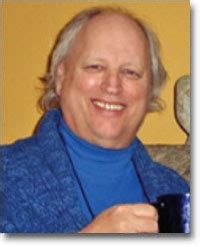A Quote by Laura van den Berg
As a genre, the best horror poses central human questions - Who can you trust? What is the cost of our secrets? What is our relationship to history? What are we blind to? What evils are lurking under the smooth surface of the self? - through radical dislocations.
Related Quotes
When you're talking horror or sci-fi, you're working in a genre that has loosely certain thematic elements, or, you could even call them rules. But rules are there to be broken. I think that young filmmakers should go all the way back to the history of horror, from silent films like "Nosferatu", and through to today's horror films, so they understand the history of horror films and what has been done. Understand that, and then add something new or original.
No one wishes for crisis, but when crises come, they can call forth our best impulses, those of compassion, courage, creativity, and community. And if there are crimes and evils hidden in the dark places of our society and the darker places of our consciousnesses, all the better they come to the surface to be seen, understood, confronted, and healed. If our generation is called to bear a burden of that healing, it is a powerful calling and honor and one within our capability.
His [Ben Okri's] work poses very serious questions for the twenty-first century. Among them: To what extent will we allow the indefinable dynamics of something called "destiny" to maintain grief and horror in the world? How hard are human beings willing to fight to achieve and sustain justice, equanimity, or joy? And should progress be called such when it devours what is best within the human spirit?
One has to know what is the ultimate goal of our life. The ultimate goal of our evolution is to become the Spirit, which is the reflection of God Almighty in our heart. That is self identity and also self knowledge. Also, one becomes one with the all-pervading Divine power of love. Our awareness is enlightened by the Spirit and Divine vibrations start flowing through our central nervous system enlightening our being.
If you don't put the spiritual and religious dimension into our political conversation, you won't be asking the really big and important question. If you don't bring in values and religion, you'll be asking superficial questions. What is life all about? What is our relationship to God? These are the important questions. What is our obligation to one another and community? If we don't ask those questions, the residual questions that we're asking aren't as interesting.
In order to trust God, we must always view our adverse circumstances through the eyes of faith, not of sense. And just as the faith of salvation comes through hearing the message of the gospel (Romans 10:17), so the faith to trust God in adversity comes through the Word of God alone. It is only in the Scriptures that we find an adequate view of God's relationship to and involvement in our painful circumstances. It is only from the Scriptures, applied to our hearts by the Holy Spirit, that we receive the grace to trust God in adversity.
Because crime stories reveal an aspect of our personality that everybody has, but which we normally keep very deeply hidden. We like to talk about the good sides of ourselves. We don't like to talk about our hatreds, our distrusts of one another, our secrets, but crime stories drag those things to the surface and consequently they fascinate people and always have throughout all history.





































